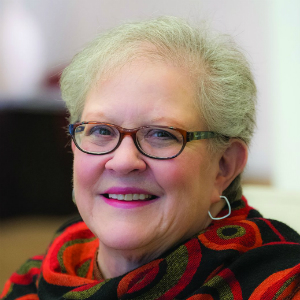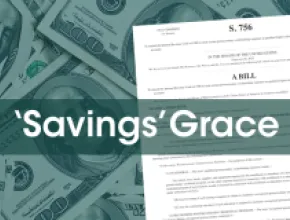What do your peers have to say about industry ethics and ethical behavior?
The times—given the ethics allegations and questions surrounding those in the current U.S. presidential administration and around the world in government and business—and the changing policies (change in commission structure, for example) in our industry have caused me to reflect and question how we conduct business and ourselves more than I have before in my 40-plus years in this industry.
Add to this the globalization of our work and situations shared with me by hoteliers currently in the workforce and retired—and by planners—and situations with which I’ve dealt on behalf of others…
Yes, I question whether many behaviors I see are ethical. Here, I only write about our industry because it is the one in which I work and know best.
Although I’d long been an “it depends/grey area” or situational ethics thinker, today, seeing actions in and outside our industry, I am not sure that grey is where we need to be, at least as a baseline. I hope that these responses, those from industry recruiters and your own questions lead us to concrete actions.
I was once told that ethics, like diversity/inclusion and risk management—the latter two again in fashion because of #MeToo, Black Lives Matter, immigration, globalization, and horrific incidents at concerts and other venues—was not a ‘sexy’ topic. But I think the perception of our industry, what we do and how we do it has been under scrutiny for years, and more so in the last few. It will continue to be questioned.
In addition to reaching out for information and responses, I used social media to ask those interested in responding to questions about ethics to contact me. Following are excerpts of their responses, edited for clarity and space in the hope I’ve not misinterpreted anyone’s comments.
My immense gratitude to those who responded and to those with whom I spoke. Although not scientific, it provides a good snapshot.
I’ve chosen not to name any names since some were uncomfortable with their names being attached and others wanted to have their responses posted anonymously.
I challenge the industry, through the EIC or a special task force, to take this advice from one of the respondents and act: “It would take a strong organization to come up with a study on the State of Ethics in the Hospitality Industry. Who will that be?” I think a "seat at the table," which we’ve long fought for, can only be ours if we work ethically.
Summation of Respondents and Responses
Respondents are current members of the American Society of Association Executives (ASAE) and numerous state societies, Meeting Professionals International (MPI) and its chapters, the Professional Convention Management Association (PCMA) and its chapters, Event Service Professionals Association (ESPA, formerly ACOM), the AMC Institute, the Society of Government Meeting Professionals (SGMP), and the Canadian Society of Professional Event Planners (CanSPEP).
Among the designations held by respondents:
- Certified Association Executive (CAE).
- Certified Meeting Professional (CMP) and CMP Emeritus.
- Certified Trade Show Marketer (CTSM).
- Certified Government Meeting Professional (CGMP).
- Certificate in Meeting Management (CMM).
Q.: Does your employer have a code of ethics?
Of those responding, all but one worked for a company or organization that had a code of ethics. The responses on the codes held by their organizations included the following:
Combined Responses from those with associations or association management companies:
For our members: The code of ethics was rescinded two years ago in support of codes of ethics published by certification agencies recognized by our organization. At the time, our members’ governing body felt that having a code of ethics exposed us to liability from various legal angles, most notably from an oversight and enforcement perspective.
We do not have the resources to respond to complaints brought against members or other professionals. Because each of the certification agencies have their own codes of ethics, we also felt ours would be in conflict.
The governing body felt that violations of professional codes of ethics would be best handled by the certification agencies (generally, individuals are legally required to hold a certification to practice in the profession in many jurisdictions).
Further, to be a voting member of the Society, you need to be a practicing professional. If a member loses the ability to practice, their membership category changes and they may not have full voting rights in the Society.
While we do not have a formal code of ethics as employees, we do have a set of core values, value propositions and a stated commitment to human rights. The core values include commitment, leadership, integrity (which includes acting ethically), creativity and accountability.
Q. Please explain what guides you ethically.
Among the responses were the following that mirror the responses I’ve heard over many years by those who attend sessions on ethics I’ve taught:
- Examples set by others.
- Desire to set an example for others.
- A general understanding of what is right and wrong.
- Keeping in mind the old saying, “Will my Mom be proud if her friends read about what I’m doing on the front page of the newspaper?”
- My religious faith.
- What is morally right for doing business as a representative of my company. I follow the ethics guidelines as stated by our company and I want to represent my company with the same trust that they place in me.
- [Corporate] handbook, training, HR and senior leadership.
- Upbringing and 34 years of working with the U.S. federal government.
- My own company’s code of ethics and my own stringent (and rigid) personal ethics.
Q. In all the industry codes of conduct, including that for CMPs, there is language to the effect of not using one’s position for undue personal gain. How do you interpret that?
Can you think of a situation to which this might apply in our industry? If so, please elaborate.
Responses:
- I’m not sure how to interpret that. Charging exorbitant fees (beyond what would be reasonable) to clients because I am a CMP? I mean, I hope it’s a demonstration of a commitment to the profession and expertise that I have [the CMP]. But I’m not sure how I would leverage it. Now, if I didn’t have a CMP but was promoting myself as such, that would seem to make sense to me [as unethical behavior]. [It is easy to verify on the EIC website] who has their CMP; names and expiration dates are noted.
- My interpretation goes to many areas of the hospitality industry. If I am a member of a[n industry] volunteer board, I should not use that position to further my own business. I should not use social media inappropriately as a member of that board, thus protecting both my own reputation and the organization for which I am volunteering.
In dealing with suppliers and other strategic partners, any choices I make in site selection and recommendation [should be] solely based on:
- Needs and wants of the organization.
- Ultimate experience for all stakeholders.
- I [would] never choose a venue because of any special offers such as free gifts (TV monitors, etc.) provided to me as the planning professional, or extraordinary meeting point offers such as the million points I’ve seen offered.
- A conflict of interest and making decisions that will benefit me, while not necessarily benefiting the organization [for whom I work]. [A conflict may exist in] Choosing venues for meetings when loyalty points are offered and amenities are expected.
- [I interpret that to mean] that we should not use our power at work to make decisions based on how the results benefit us personally.
Yes, I can see situations that might apply: kickbacks! For example, I make decisions on which company to buy client gifts. There are companies that will send personal gift cards to me with the idea of my using them without advising my employer. Recently, a transportation company gave me a $50 gift card when I referred a client to their company. I used it to take my team out to happy hour [rather than using it for my own personal use].
- I interpret that there should be no FINANCIAL BENEFIT or CAREER ENHANCEMENT or VISIBILITY ENHANCEMENT or COMPANY BENEFIT by participating in an activity, without clearly expressed gains made public. Familiarization trips [“Fams”] to locations with no potential for business; gifts received from suppliers; commissions undisclosed, all come to mind as examples.
[Capitalization was that of the respondent.] - An industry professor responded with the following:
I interpret that to mean expecting, demanding, taking advantage of my “connections” for special favors. [The most obvious example of this in action] is probably requesting complimentary/severely discounted guest rooms or services for personal use—whether already under or negotiating a contract.
Q. If you believed someone behaved unethically, what would you do?
Responses varied. Most included first talking with the individual believed to have performed unethically. One response that reflected many of the others included the following:
“This is a tough call. Is that person approachable? How well will that conversation be perceived?"
Another response: “I am currently struggling with a session a presenter gave at an industry conference; I know some of the slides presented were mine—either my intellectual property or work done as a volunteer.
The presenter offered the slides without attribution to anyone. Why am I struggling?
Because I am very busy with several client projects and if I present this, I will probably do so to the organization with samples of my prior work from which the material was plagiarized. That will take time and, while I will certainly guard my own work, why are associations not protecting their intellectual property?”
Q.: Depending on the response of the person you believed has acted unethically and your reading of their employer’s or an industry’s code and the situation, would you:
- If the person were a CMP, report the action to the CMP Board?
- If the person were a member of an industry organization, report it to that organization?
- Report it to the person’s employer if you read the employer’s ethics code and thought the person violated the code?
- Other (please specify).
Among the responses:
"Right now, I don’t have a great deal of faith that in bringing violations to boards/industry organizations would result in any action being taken to remedy the situation.
"I wonder if there are any statistics on violations and actionable remedies. I am guessing not.”
“As an individual, I don’t believe it is my job or even my right to go to the person’s employer, assuming they even have a code. I have and continue to teach ethics and its many shades of grey.”
“Will it ever change such that people are actually held accountable? I doubt it. Reputation in this industry is essential. If one’s reputation is not trusted within this community (as large as it is, it is very small), that distrust gets spread quickly.”
“First and foremost, I will protect my reputation that has taken a lifetime to build, and then will continue to teach and write on ethics when industry meetings and publications are open to that.”
Q.: Given your industry experience, do you think our industry is more or less ethically challenged today? To what do you attribute why you think that?
- I don’t get a sense that we’re any more or less ethically challenged since I entered the profession. I do think there has been a greater understanding of what is and is not ethical and how to report it. I think we’re hearing about issues more [often], but that doesn’t mean anything other than reporting bad behavior is changing.
- I think we’ve gotten a bit better (that’s the Pollyanna in me)--but perhaps that is because business methods have changed, and we’ve put some restrictions in place. (Not because we’ve become more ethical.) For example, DMOs are charging a nominal fee for FAM trips (or eliminating them altogether). Hotels and DMOs have better databases, allowing them to check if planners are padding their room blocks to receive more concessions.
- Transparency in hospitality has become a buzzword. Of course, we are more ethically challenged—look at the most recent [issue involving an industry organization’s call for presentations]. [This organization, an EIC member] spoke to the issue but the speakers were obviously coached by their “spin doctors” to emphasize that while they made a mistake, it did not rise to the level of COmission but was instead Omission. Why not just say we made a mistake, we are fixing it and ensuring it will never happen again? Stop saying software did it. Humans did it.
- I don’t think it’s more or less; it’s probably the same as always.
- More challenged as we see the [U.S. federal government] administration disregarding established rules and customs.
- Yes, I believe our industry is challenged regularly with unethical practices and behaviours. I believe this [is because] there is no minimum standard of education required to be in the industry (i.e., I planned my wedding, I am an event planner); suppliers are desperately vying for business; some skeptical practices are worn as badges of honour.
Last Question: What would you do to encourage dialogue about general and specific ethics issues in our industry? And if you teach in the industry—at any level, including CMP study groups—what can be taught?
- I think having a quicker and more comprehensive response as an industry to any headlining scandals is the first step. We still haven’t been able to figure out how to advocate on behalf of the industry—not just our respective EIC-member organizations—in an impactful way. I think that has been jumbled by rebranding efforts. There shouldn’t just be a response when something goes bad; we need to highlight the positives, too.
- In teaching those in or going into our industry, we cover business ethics in a number of classes but not a very in-depth discussion.
- We can teach all we want but unless the message is accepted, we might as well be talking to the wall. I used to teach ethics as part of a meetings certificate program. Some young students, when discussing the ethics of accepting fam trips if you have no intention of booking the area or the venue, stood right up in class and challenged me. They said, “They might someday need that property or area,” and therefore, in their minds, it was ethical. Is this all part of youth and entitlement? It would take a strong organization to come up with a study on the State of Ethics in the Hospitality Industry. Who would that be?
- I think ethics is a top priority and it should always be covered at least once a year at various industry sessions.
- I teach ethics to government meeting professionals and suppliers. The Office of Government Ethics is very specific about what can and can be accepted, with dollar thresholds. I am appalled sometimes when I hear stories about offerings and acceptances. I give personal examples of temptations and having to decline. I ask the question (which is the title of an ethics presentation), “What would you do if no one was looking?”
- Create an environment where whistleblowers are rewarded and where business practices are regularly discussed and examined publicly.
Joan’s last words on this discussion: Oh, the conversations that would ensue for each of these questions and responses were we conducting a class or in a podcast. [Stay tuned! We are planning to do so!]
For example, what does one consider “extraordinary points”—is it 10,000, 50,000, or as someone stated, a million? When one looks at the dollar value allowed for received gifts or entertainment, it is often $25. Is that per vendor, per person, per year, or is it per day or month or item?
The nuances of ethical behaviors are great, and in order to determine what we mean and how we will act, it is best to dissect policies and perceptions in great detail. Time consuming? You betcha. Critical to our being considered professionals and protecting our personal reputations and that of our industry? Even more so.
Related Reading From the December 2018 Edition of Friday With Joan
- 'Tis the Season: Ethics of Gifting and Entertaining
- Q&A: Recruiters Talk Ethics and Job Interviews
- What's Your Take? December 2018 Ethics Survey
- Related FWJ Blog Post and Part I of Our Conversation on Ethics:
Our Industry's Reputation and Yours Are at Stake -- Help Is Needed!
Click here to view additional content in the 12.07.18 Friday With Joan newsletter.







